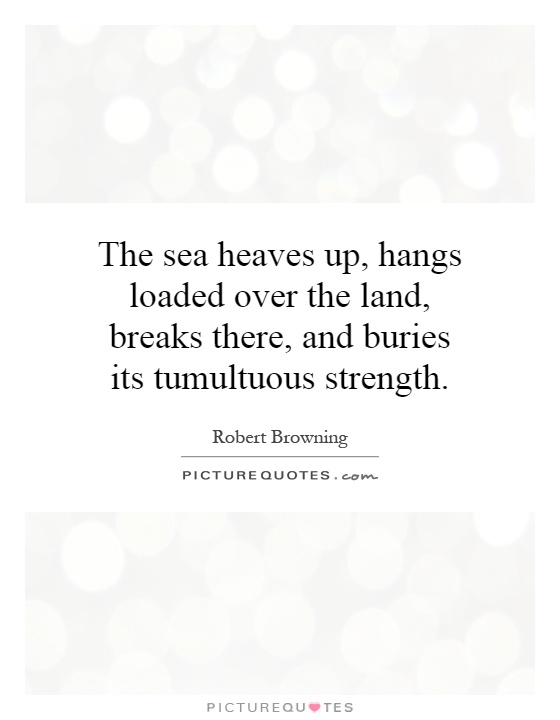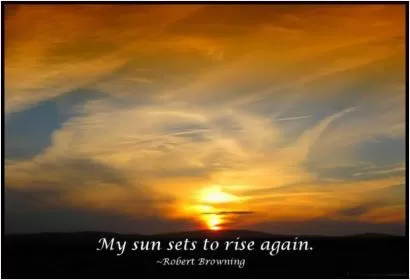The sea heaves up, hangs loaded over the land, breaks there, and buries its tumultuous strength

The sea heaves up, hangs loaded over the land, breaks there, and buries its tumultuous strength
Robert Browning was a renowned Victorian poet known for his dramatic monologues and exploration of complex human emotions. In his poem "Caliban upon Setebos," Browning delves into the themes of power, nature, and the human condition. The line "The sea heaves up, hangs loaded over the land, breaks there, and buries its tumultuous strength" encapsulates the raw power and unpredictability of nature, a recurring motif in Browning's work.The image of the sea heaving up and hanging loaded over the land evokes a sense of impending chaos and destruction. The sea, with its vast expanse and uncontrollable force, symbolizes the primal forces of nature that can overwhelm and consume humanity. Browning uses this imagery to highlight the fragility of human existence in the face of nature's power.
The sea breaking over the land represents the inevitable clash between civilization and the untamed forces of nature. Despite humanity's attempts to control and harness nature, there are moments when nature asserts its dominance and reminds us of our vulnerability. The sea's tumultuous strength is a reminder of the inherent chaos and unpredictability of life, a theme that Browning often explores in his poetry.
Browning's use of vivid imagery and evocative language in this line reflects his skill as a poet in capturing the complexities of human experience. The sea, with its ever-changing moods and relentless power, serves as a metaphor for the turbulent emotions and conflicts that define the human condition. By juxtaposing the sea's strength with the land's vulnerability, Browning invites readers to reflect on the delicate balance between civilization and nature.
Overall, the line "The sea heaves up, hangs loaded over the land, breaks there, and buries its tumultuous strength" encapsulates Browning's exploration of power, nature, and the human condition in his poetry. Through this imagery, Browning invites readers to contemplate the fragility of human existence and the enduring power of nature.












 Friendship Quotes
Friendship Quotes Love Quotes
Love Quotes Life Quotes
Life Quotes Funny Quotes
Funny Quotes Motivational Quotes
Motivational Quotes Inspirational Quotes
Inspirational Quotes